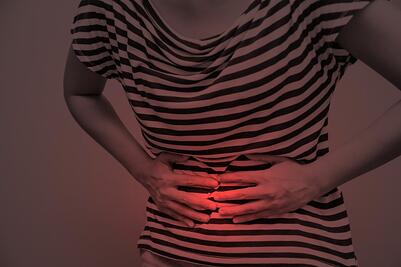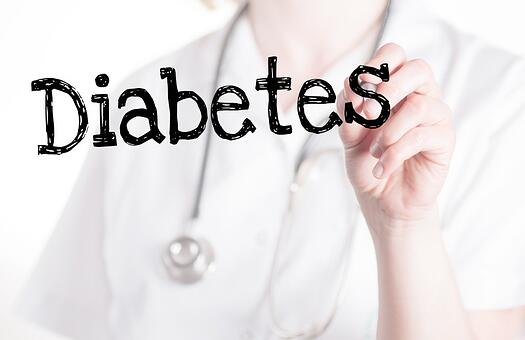Diabetes is a chronic disease that causes high levels of sugar in the blood due to problems processing or producing insulin. There are three types of diabetes, namely type 1 diabetes, type 2 diabetes, and gestational diabetes, and women feature in all. In the US, approximately 15 million women suffer from diabetes, which is an estimate of 1 in 9 adult women.
Many people ask how diabetes in women is different from diabetes in men. According to the Center for Disease Control and Prevention, diabetes in women increases the probability of heart disease by four times while in men, the likelihood of heart disease is only about two times. Also, women, as opposed to men, have a higher risk of contracting diabetes-related complications like blindness, kidney disease, and depression.
Symptoms of Diabetes in Women
Although the symptoms of diabetes are almost similar in men and women, some are unique to women. This article discusses the symptoms of diabetes that are unique to women so that you can identify diabetes and seek treatment early. Treating diabetes early can assist you in evading further health complications. While having these symptoms does not mean you have diabetes, they can indicate insulin resistance that is often associated with diabetes.
Symptom #1: Decrease in Sex Drive
 Women with diabetes can experience a decrease in sex drive because of nerve damage, hormonal changes, medications, and blood flow issues to the vagina. Notably, high blood sugar causes diabetic neuropathy, whereby nerves do not transmit signals between the brain and body organs. This results in some parts of the body like hands, legs, and feet losing partial or complete sensation.
Women with diabetes can experience a decrease in sex drive because of nerve damage, hormonal changes, medications, and blood flow issues to the vagina. Notably, high blood sugar causes diabetic neuropathy, whereby nerves do not transmit signals between the brain and body organs. This results in some parts of the body like hands, legs, and feet losing partial or complete sensation.
Diabetic neuropathy also affects the vagina making it lose sensation resulting in low sex drive. Some women can experience vaginal dryness that causes discomfort and pain during sex and thus hindering them from enjoying sex. Other women may experience difficulty with arousal and attaining organism.
Symptom #2: Vaginal and Oral Yeast Infection
Oral and vaginal yeast infections are caused by Candida albicans fungus. A high level of glucose in the blood causes the growth of this fungus. Glucose is fuel for yeast, and a high level of glucose helps it to multiple. Although vaginal yeast infections are common among all women, women with diabetes are more vulnerable because of high blood sugar levels. Some of the symptoms of oral yeast infections are:
- Trouble eating and swallowing
- Redness and soreness in the mouth
- White patches around the mouth
- Swollen inner cheeks
Among the symptoms of vaginal yeast infections are:
- Vaginal itching and pain
- Reddening of the skin
- Vaginal discharge
- Pain during sexual intercourse
If you have yeast infections regularly or the standard treatments are not working, it’s time to consult with a physician.
Symptom #3: Polycystic Ovary Syndrome (PCOS)
 PCOS emanates from hormonal imbalance in a woman’s body. It causes insulin resistance and female infertility. Insulin resistance leads to high blood sugar levels that increase the likelihood of contracting diabetes. Around half of the women with PCOS get diabetes.
PCOS emanates from hormonal imbalance in a woman’s body. It causes insulin resistance and female infertility. Insulin resistance leads to high blood sugar levels that increase the likelihood of contracting diabetes. Around half of the women with PCOS get diabetes.
Research published in the Journal of Clinical Endocrinology and Metabolism revealed that women with PCOS are four times more likely to get diabetes type 2 than women without PCOS. Women with PCOS can take it as a warning sign for diabetes.
Among the symptoms of PCOS include:
- Acne
- Irregular periods
- Excess hair growth especially on the face and body
- Weight gain
- Depression
- Infertility
Symptom #4: Urinary Infections
Urinary tract infection (UTI) emanates from bacteria in the urinary tract –urethra, ureters, bladder, or kidney. The bacterium colonizes the urinary tract and thus causes infection. Research shows that more than 50% of women will contract a UTI in their lifetime.
However, if you have diabetes, you have a higher risk of getting UTI because of high blood sugar levels and the body’s inability to fight infections. Also, diabetes may cause a woman’s bladder to hold some urine –not empty all of it- which offers a favorable environment for bacteria to thrive.
The symptoms of urinary infections include:
- Pain when urinating
- Burning sensation in the vagina
- Bloody urine
When a UTI remains untreated for long, it increases the likelihood of a kidney infection.
Symptom #5: Long and Irregular Menstrual Cycle
Long and irregular menstrual cycles accompanied by heavy periods can be a sign of diabetes. Women with diabetes have long and irregular menstrual cycles, mainly associated with insulin resistance.
Several studies have revealed that women with a history of long and irregular menstrual cycles get diabetes type 2. Research published in the Journal of American Medical Association reveals that extremely irregular, infrequent, and unusually long menstrual may be an early sign of diabetes type 2 because they show insulin resistance.
Symptom #6: Gestational Diabetes
 This type of diabetes affects pregnant women and occurs in 9.2% of all pregnancies. Gestational diabetes occurs when pregnancy hormones interfere with the working of insulin resulting in too much or insufficient insulin. The good thing with this type of diabetes is that it is manageable and in some cases, disappears after pregnancy.
This type of diabetes affects pregnant women and occurs in 9.2% of all pregnancies. Gestational diabetes occurs when pregnancy hormones interfere with the working of insulin resulting in too much or insufficient insulin. The good thing with this type of diabetes is that it is manageable and in some cases, disappears after pregnancy.
In many cases, gestational diabetes has no symptoms and goes unnoticed. Thus, it is recommended for your doctor to screen you for gestational diabetes between the 24th and 28th week of pregnancy. However, you may experience diabetes-related symptoms like:
- Sugar in urine
- Fatigue
- Frequent urination
- Dry mouth
- Increased vaginal infections
- Blurred vision
- Unusual thirst
High blood sugars in the blood pose various risks for the mother and child including:
- Premature delivery
- Miscarriage
- Birth defects
- A big baby
- Jaundice
- Breathing issues for the newborn
Although diabetes affects both men and women, it can be especially hard for women. This is mainly because diabetes can affect a mom and her unborn child. Also, women have unique diabetes symptoms that mostly have to do with their reproductive system. Understanding and detecting these symptoms early can help women get treated for diabetes soon enough before the condition escalates. If you see these symptoms, do not panic; seek help from a women’s health specialist.

